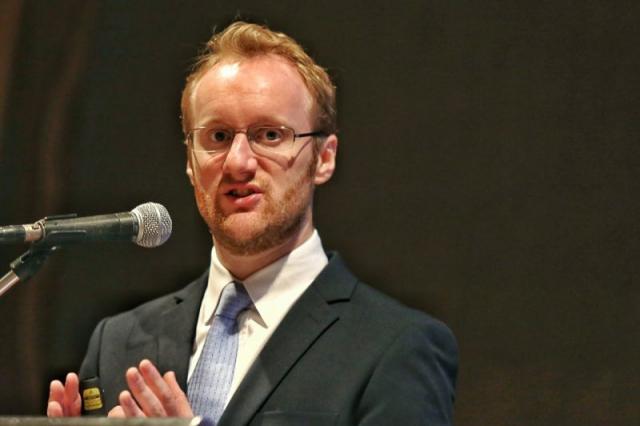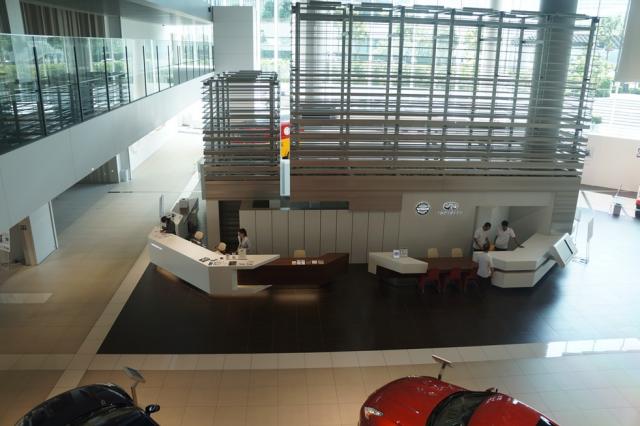Search the Community
Showing results for tags 'global'.
-
Samsung and Huawei crush Apple's smartphone global market share It wasn't long ago that it looked like Apple would overtake Samsung to grab the biggest chunk of the global smartphone market. But now the company has been pushed into third place by Huawei. By Adrian Kingsley-Hughes for Hardware 2.0 | May 6, 2019 -- 07:32 GMT (15:32 GMT+08:00) It's funny how quickly things can change. Three months ago it seemed like Apple was on track to grab the global smartphone market share crown from Samsung, only to be shoved into third place by Chinese maker Huawei. What does this mean for Apple? Here's a chart that tracks the fight between Apple, Samsung, and Huawei over the past five quarters (courtesy of Bloomberg, based on IDC data): Well, on a totally business front, market share and revenue (and profits) are two separate things, and it might be foolish to focus too heavily on market share. Look at the dollars and cents, if we take the last quarter revenues and profits, it's clear that market share isn't everything. Samsung - Revenue: $44.7 billion | Profits: $5.3 billion Huawei - Revenue: $26.8 billion | Profits: $2.1 billion Apple - Revenue: $58 billion | Profits: $11.6 billion See how revenue and profits tell a different story. But this doesn't mean that Apple shouldn't be worried. The key to Apple's business is market share. The bigger and more robust market share it can create, the more loyal its customers are, and the more it can sell to them in terms of services and accessories that both help to drive profits and lock users deeper into the ecosystem. The more handsets Samsung and Huawei sell, the harder it becomes for Apple to expand its ecosystem. The companies may even be able to grab customers away from Apple – especially at the bottom end, where consumers are more sensitive to price – further eroding Apple's iOS ecosystem. Another thing to bear in mind is that the Huawei effect hits Apple at the core of a vulnerable market – China. Apple has been eyeing China for years now, seeing it as the perfect venue to cause a market explosion. But this effect hasn't materialized. And with increased pressure from the likes of Huawei, it now seems unlikely. And this could, in the longer term, become a much bigger problem, especially as iPhone sales are going soft all round. And if Huawei is right, and it is able to grab 50% of the smartphone market share in China, and take the global market share top spot away from Samsung by 2020, this could squeeze the iPhone even more. While it's never wise to try to predict the future in too much detail, it's hard to not come to the conclusion that Apple's woes are only just beginning, and that the company's focus on services and things like credit cards might be happening at just the right time.
-
looks like someone very stress in singapore https://www.asiaone.com/singapore/singapore-dirty-f-and-smells-garbage-tourist-complains-about-country-mocks-7-eleven-staff
- 156 replies
-
- 8
-
.png)
-

-

-
- jin stress
- ahmok
-
(and 6 more)
Tagged with:
-
My kid phone number, tagged to me, was charged for over 200+ global SMS to the following numbers: 447937980269 886907444460 886907444429 886907444464 at the following time: 19-Jun-22 11PM to 20-Jun-22 at 10 AM. This was informed to me after I have sent enquiry to Singtel. But at that time, My kid was asleep in our room already and definitely not playing with his phone or anything. I also checked his phone for these 200+ messages to no avail. Unfortunately, Singtel was not able to do anything about it at all. And he definitely do not know anything about these global SMS. Who uses SMS nowadays anyway? I will be less surprised if it is some form of online purchases, but global SMS? Anyway, Singtel say they cannot help on this and just ask me to monitor the device messages. I suspect the SIM data being hacked but they also ignored this.
-
https://www.abc.net.au/news/2022-10-01/david-taylor-global-financial-crisis-2/101492384 The world is flirting with another global financial crisis, and the next few weeks are key It's hard to overstate the magnitude of the financial trouble Britain and, because of its financial heft, the world found itself in this week. We came within inches of "global financial crisis mark 2". That's not hyperbole. Towards the end of 2008, it was clear many Wall Street investment banks were on the brink of collapse. They were sitting on tens of billions of dollars' worth of rubbish assets – mortgage-backed securities attached to properties plummeting in value. A credit crunch was sparked when the US government allowed Lehman Brothers to collapse. It was sitting on a lot of these worthless assets. Suddenly, it was unclear who could afford to repay loans and who couldn't. We've just flirted with a scenario of similar magnitude. The problem now is, well, the flirtation is not over. Comedy of errors Liz Truss – Boris Johnson's replacement as British prime minister – inherited an economy at risk of entering a protracted and deep recession. Truss delivered a "mini-budget" last week which offered up lots more government spending and the biggest package of tax cuts in 50 years to help stimulate the economy. Great, right? Well, not so much. Financial markets asked an obvious question in response: "how are you going to pay for this?", when the UK's budget deficit (or net borrowing) is already in the hundreds of billions of pounds. The BBC reported conservative MPs walking the corridors "in shock" after the mini-budget was handed down. The ultimate response from the money markets was a vote of no confidence in the fiscal package. The bond market "sold off". Bond prices in the fixed income market plummeted. As bond prices fall, yields rise. It's really not necessary to understand the bond market machinations here, but it is important to understand the next point. That is, for Britain's pension scheme to work, or continue as a going concern, interest rates can't rise too high too quickly — which is what happened. The funds found themselves unable to pay pensions because they were losing too much money on their investments. To stop this, the Bank of England came in to buy up bonds on an enormous scale to increase the price of bonds and lower the interest rates on those bonds. "To achieve this, the Bank will carry out temporary purchases of long-dated UK government bonds from September 28. The purpose of these purchases will be to restore orderly market conditions," the Bank of England said. "The purchases will be carried out on whatever scale is necessary to effect this outcome. The operation will be fully indemnified by HM Treasury." But here's the killer line. "Were dysfunction in this market to continue or worsen, there would be a material risk to UK financial stability." What the Bank of England was suggesting, according to former London City trader Henry Jennings, is that when the bond market moved violently against these pension funds, they were at risk of being placed into margin calls. That is, many funds had borrowed money to make more money. They were heavily in debt to enhance their returns. They were about to be asked to "pay up". If they were asked to pay up, they would have been forced into liquidating their assets, which he says would have led to a financial markets "death spiral". The sheer weight of global assets being sold off would have, in Jennings' opinion, led to a global "confidence crisis". Problem not going away The Bank of England bailout of Britain's pension schemes is limited. "These [bond] purchases will be strictly time limited," the BofE said. "They are intended to tackle a specific problem in the long-dated government bond market. Auctions will take place from today until 14 October." So, what happens when they stop buying gilts, or British bonds? The chief economist of the National Australia Bank says the forces that led to Britain's financial system edging to towards the brink remain firmly in place. "Markets are getting a bit worried," Alan Oster says. He says interest rates in Britain will keep climbing, and may do so quite aggressively in the coming months. "[Markets] are talking – well, it's frightening, they're starting off from a cash rate of 2-ish per cent and they're talking about a 1.25 per cent or 1.5 per cent interest rate increase [at the next Bank of England meeting]". "It's extraordinary and of course the pound is being absolutely killed." In other words, the problem facing the pension fund scheme is set to return. It's heavy stuff So, let's just do a quick stop-and-check at this point, because it's heavy stuff. The UK is still at risk from a financial crisis because a major investment scheme remains vulnerable to a bond market that's still at risk of plummeting due to the UK's economic woes (in part created by a dire mini-budget). This is all being reflected in a recent collapse of the pound. A financial crisis in the UK would, analysts say, lead to a global economic rout. Is Australia immune? The short answer is no. The Australian dollar is hovering around two-year lows against the greenback, and the stock market is down 15 per cent from peak to trough. We're inching towards a share "bear market". This has obvious implication for those in and approaching retirement. A destabilisation of the global financial system, more broadly though, would produce the same shock waves as 2008 and 2009. It leads to higher unemployment and a recession. The problem this time around is that the Australian government, and indeed the Reserve Bank, are in no position to engage in extraordinary economic stimulus measures. But … so far so good However, it seems the majority of Australians, right now, have the financial capacity to continue on in a relatively normal fashion. Australian retail turnover rose 0.6 per cent in August, according to Retail Trade figures released by the Australian Bureau of Statistics earlier this week. The August increase was the eighth consecutive rise and follows a 1.3 per cent rise in July and a 0.2 per cent rise in June. "This month's rise was driven by the combined increase in food related industries, with cafes, restaurants and takeaway food services up 1.3 per cent and food retailing up 1.1 per cent," Ben Dorber, head of retail statistics at the ABS, said. The dark cost-of-living clouds hanging over millions of Australians is "being balanced by people saying, 'well, I'm not going to lose my job' ", NAB chief economist Alan Oster says. "The economy is doing really well." But, and that's a big but, he says ominously, the "next four weeks will be interesting". That's a reference to the fact that the bulk of already-announced Reserve Bank interest rates hikes will hit bank accounts over the next couple of months. It's unclear to most observers how, exactly, this would damage the Australian economy. Work is already underway though to put policy makers in a better position to make the right calls when it come to pulling the levers. The ABS, for example, is now delivering monthly inflation or cost of living data. The first monthly Consumer Price Index (CPI) indicator rose 7.0 per cent in the year to July and 6.8 per cent to August. The largest contributors, in the 12 months to August, were new dwelling construction, up 20.7 per cent, and automotive fuel, up 15.0 per cent. Now the Reserve Bank is in a better, or timelier, position to see how its policy tightening is influencing prices in the economy. This, in practice, is meant to avoid hiking interest rates too far. The RBA meets on Tuesday. At the moment it's a coin toss as to whether the bank raises its cash rate target by 0.25 or 0.5 percentage points. How serious is all this? Naturally, with any major financial event, the question is: do I need to worry about this? The answer is that you need to keep watching this story unfold. AMP's chief economist, Shane Oliver, suggests while the Bank of England's short-term effort to bring back the UK financial system from the brink has worked, the country's financial system is set to go right back there again soon. "The Bank of England's intervention to calm the gilt market (which was threatening financial problems for UK pension funds) by buying bonds (ie restarting QE) has helped calm things – directly in the UK and indirectly elsewhere by showing that authorities will still intervene in a crisis," Dr Oliver said. "Unfortunately, the return to QE [bond buying] may just add to inflationary pressures if it has to be sustained for long, which may necessitate an even higher interest rate hike when the BoE next meets in early November with many talking about a 1.25 per cent hike, which leaves the BoE in the silly position of easing and tightening at the same time." So, the options are that the Bank of England keeps coming to the rescue of the UK financial system with the risk of exacerbating inflation which will lead to much higher interest rates, or allow the market to take over, and risk a full-blown financial crisis when the bond market collapses again. Australia seems to be in a reasonable position now to manage a financial shock, but it's unclear whether that will still be the case in just a few weeks' time. Huge risks remain. Printing trillions of dollars of money, globally, during the pandemic to support the global economy was always fraught with risk. As it stands we are unable to remove that economic support without the whole system collapsing, but we need to remove it before we create even bigger economic problems. It's an extremely uncomfortable position to be in.
-
Continue your stressful events here: Old link below: http://www.mycarforum.com/topic/2695919-the-global-stressful-thread/ must follow the master style on how to post! Jin stress
- 7,758 replies
-
- 16
-

-
- jin stress
- ahmok
-
(and 6 more)
Tagged with:
-
is that why this few days so cold? :huh:
-
hi all, ask more. learn more. know faster. chanced on this website a few weeks ago and it is very useful. My own kids find it useful. Students from around the word come tog to share knowledge and solve problems. Students bring their own special skills to share and collaborate to learn together. Good app for your growing kids and teenagers. Do check it out. https://brainly.co/
-
https://www.channelnewsasia.com/news/singapore/subaru-two-global-recalls-faulty-engine-part-information-display-10887944 "Fewer than 100 vehicles in Singapore are affected, said distributor Motor Image in response to Channel NewsAsia's queries." That said, Subaru owners should take a look to see if their vehicles are affected by the recall.
-
Yahoo : Singapore is third best ‘global city’, others have ‘long way to go’, property expert says KUALA LUMPUR, March 15 — Malaysia’s capital and other cities behind Singapore in a “global city” ranking require significant improvement in a variety of areas before they are competitive against the city-state, world property consultancy firm Knight Frank said today. Its Asia-Pacific head researcher Nicholas Holt said aspiring competitors needed to be more transparent and encourage free market practices in order to keep up with Singapore, which ranked third in Knight Frank’s Global Cities 2016 report. “Singapore, it’s the transparency, it’s the ease of doing business, to set up a business, it comes in at the top in terms of setting up a business. “When you come into Malaysia, there’s a lot of red tape, uncertainty, thinking, ‘Is something going to happen?’ “So I think there’s quite a long way to go,” Holt said after launching Knight Frank’s Wealth 2016 report. He added that Malaysia needed to be more open to business ventures from abroad, a trait other major cities like Singapore, London and New York, have embodied and which enabled them to be successful. “So for KL to truly become an international and global city it would have to have lots of reform and it has to really capture demand from corporates and investors globally ahead from places like Singapore which would be a tough task,” Holt said. But Holt also noted that Kuala Lumpur was making various improvements to its infrastructure, such as the light rail transit (LRT) extension and the new mass rapid transit (MRT), which will get it closer to becoming a “global city”. Knight Frank later clarified that Holt was speaking on a global level and had not meant to comment specifically about Malaysia. The top two spots on Knight Frank’s Global Cities 2016 went to London and New York respectively. Hong Kong coming in fourth, followed by Dubai on fifth. Malaysia was not listed in the report which only ranks the top 10 “global cities” in the world. He added that Singapore also benefited when the former British colony returned to China as a special administrative region, creating an opening for the city-state to position itself as the preferred financial services centre in the region. "And then in 1997 Hong Kong went back to the Chinese; that was the opportunity for Singapore really to push their banking and finance and their wealth management centre outside of Hong Kong within Asia and now when people say 'Hong Kong or Singapore' they go with Singapore," he said. He added that instead of competing with Singapore, Malaysia could instead aim to complement the neighbouring country by focusing on other aspects like Islamic finance. According to the Knight Frank Global Cities website, the cities selected "explored the future of the built environment, and is intended to help investors, occupiers and city planners with their future business strategy." Link : https://sg.news.yahoo.com/singapore-third-best-global-city-kl-long-way-080400567.html Ah Jib kor might not be happy with your commences..... It might be your last visit to MY ...
- 2 replies
-
- third
- best global
- (and 4 more)
-
After watching the video, i realised we are fortunate to live in Singapore
- 1 reply
-
- 13
-

-
- population
- global
-
(and 3 more)
Tagged with:
-
Well.... Nice showroom....cheaper prices....volks auto number 2? It's high time the government looks to regulate the PI market.
-
I am not financially trained. With the situation with Greece and today's falling market, is there anything to be worried about? or is this just another day in the market? Or is this leading to something like the Asian financial crisis?
-
anyone knows? This CMI korean battery fails in 1/2 a year and I kind of forgot where i change it due to bz schedule and also lost the receipt.... Dunno if bring it back to main distributor will help or not.... Can anyone provide more details on the main distributor? Thanks!
-
I was in Yokohama, Japan for work. Only the day I am to fly back, made a visit yo Nissan Gallery Global Headquarters right there in Yokohama city centre. Its located right next to Yokohama train station. I was there ten minutes early before they opened their doors. Here are the photos I would to share here. There are a lot of them so please let me load finish then reply to this thread. Thanks. Last post will be photos of the ladies there.
-
Thats how we lost our soul ..... yahoo news : Global Price Comparison: The Toyota Corolla Global Price Index Singapore - Earlier in March it was reported in The Economist that Singapore is the most expensive city in the world. The news didn't exactly come as a big surprise, with both property prices and car prices rising even further in 2013, the latter as a result of high Certificate of Entitlement (COE) prices and increased Additional Registration Fee (tax) on expensive cars. But just how much more costly is it to own a car in Singapore? The Economist has had its own Big Mac Index around for some time now, so we decided to scour the Internet and assemble our own automotive version. The car we used was a natural choice: The world's best-selling nameplate, with more than 40-million units shifted globally, and the closest thing to an automotive white good there is - the Toyota Corolla Altis. With the launch of the new model globally, and it's now the same model sold everywhere else, it's the perfect choice for a study like this. Earlier in the year another Yahoo story did something broadly similar, but our Toyota Corolla Global Price Index (TCGPI) compares the same good across borders with a much wider scope. Toyota Corolla Global Price Index** Country/ Variant /Trim /Local Price SGD Price Australia 1.8L 7CVT ‘Ascent 4D’ A$25,812 - $30,143.51 Brazil 1.8l 4AT ? R 79,990 - $45,388.09 China* 1.6 4AT ‘G’ RMB 140,800 - $28,582.54 Cuba ??? ? USD40,000 (est) - $50,440.00 Germany 1.6L 7CVT ‘Life’ EUR22,500- $38,949.53 Indonesia 1.6L 7CVT ‘G’ Rp410,000,000 - $45,510.00 Japan* 1.5L 7CVT ‘G’ ¥1,697,143 - $20,741.46 Malaysia 1.8L 7CVT ‘G’ RM 114,015.30 - $43,954.26 Nigeria 1.8L 7CVT ? ₦ 6,000,000 - $46,110.00 USA 1.8L 4AT ‘L’ USD$18,210 - $22,962.81 Singapore 1.6L 7CVT STD - $135,988.00 South Africa 1.6L 7CVT Prestige R252,900 - $30,302.73 Taiwan 1.8L 7CVT Deluxe NT7,260,000 - $30,247.00 Thailand 1.8L 7CVT G B829,000 - $32,147.00 Analysis: It's no surprise Singapore is still the most expensive place to buy a Toyota Corolla, after all we've been the subject of other stories on our huge car prices. It's enough to buy you a lovely Mercedes-Benz CLS 63 AMG 4MATIC, or half of an SLS AMG Coupe, in the cheapest market, the USA. read more, link: https://sg.news.yahoo.com/global-price-comparison-toyota-corolla-171720950.html
- 86 replies
-
- 2
-

-
- price
- comparison
-
(and 3 more)
Tagged with:
-
The Commissioner of Charities (COC) has ordered Global Virtue, a business consulting and marketing communications firm, to stop conducting fund-raising appeals from Thursday. The COC's office had received complaints about teenagers representing the company to solicit donations or sell vouchers in public purportedly for charitable causes. The company claimed, including on its website, to be contributing part of its sale proceeds to non-profit and charitable organisations as part of its corporate social responsibility programme. But investigations showed that the firm had "no proper control over the vouchers or sale proceeds and no proper accounting records were maintained". The COC concluded that the fund-raising appeals were "improperly administered". The prohibition order was issued to the company, its directors Muhammad Zuhairi Abdullah and Mohammad Rudi Muhammad Suffian, and its advisor Jeffri Pawel.
- 2 replies
-
- Commissioner
- charities
- (and 4 more)
-
Internet Security Firm Mandiant has conducted an investigation of this for years and has finally released it APT1 report on how it claims the Chinese have a military unit under the PLA to hack English-speaking Countries' Infrastructure and firms. Stealing business plans, agreements, blueprints and so forth. Have a look its a super eye opener http://intelreport.mandiant.com/Mandiant_APT1_Report.pdf
- 3 replies
-
- China
- cyberespionage
- (and 4 more)
-
All three German luxury car makers, Mercedes Benz, Audi and BMW posted positive sales growth for 2012. In 2012, BMW sold 1,540,085 cars, Audi sold 1,455,100 cars and Mercedes Benz sold 1,320,097 cars, globally, registering 11.6%, 11.7% and 4.69% sales growth respectively. http://www.rushlane.com/bmw-audi-and-merce...al-1258738.html
-
Two lawmakers prodded the bankruptcy trustee in charge of unwinding MF Global Holdings Ltd. to drop his plan to pay bonuses to top executives who were at the securities firm when it collapsed. In a letter to former Federal Bureau of Investigation Director Louis Freeh, Sen. Jon Tester (D., Mont.) said it would be "outrageous" to proceed with a proposal to a bankruptcy judge that could result in payouts of several hundred thousand dollars each for MF Global's chief operating officer, finance chief and general counsel. The size of the bonuses would depend on their job performance in helping Mr. Freeh maximize value for creditors of the company. "Rather than reward executives in the hopes of being able to pay back creditors, I urge you to forgo executive bonuses and instead use these funds to repay the farmers and ranchers whose trust was so betrayed by MF Global," Mr. Tester wrote. "I look forward to your reconsideration of this decision." Montana is home to farmers and ranchers who invested in the futures market through MF Global but are likely to suffer losses because of the estimated $1.6 billion shortfall in customer accounts that emerged after the New York company filed for Chapter 11 bankruptcy protection on Oct. 31. The Wall Street Journal reported Friday that Mr. Freeh is planning to ask the bankruptcy-court judge in charge of the case to approve potential bonuses for Bradley I. Abelow, Henri J. Steenkamp and Laurie R. Ferber, according to people familiar with the situation. The payouts likely would be made in pieces throughout 2012. As many as 20 or so other MF Global employees now working for Mr. Freeh also would be eligible for possible bonuses. Details could be filed as soon as this month. Sen. Amy Klobuchar (D., Minn.) said in a separate letter to Mr. Freeh that the plan is "unacceptable" until numerous civil and criminal investigations into MF Global's demise are finished and missing customer money is found. She is a member of the Senate Agriculture Committee, which is conducting a probe of the financial firm's demise. "These same executives were at the helm of MF Global when it collapsed," Ms. Klobuchar wrote. "Issuing bonuses with the company's holdings sends the wrong message to customers already skeptical of the bankruptcy process." A spokesman for Mr. Freeh said Sunday in a statement that "the trustee has noted the comments" made by the senators, but "has not made any decisions" on the bonuses. He described the issue as one that comes up "routinely" in Chapter 11 cases. A lawyer working for Mr. Freeh on the case also said Friday that keeping current staff is the "most cost-effective way" to protect the interests of creditors snarled by MF Global's bankruptcy. Without help from Messrs. Abelow and Steenkamp and Ms. Ferber, Mr. Freeh likely would have to spend more on accountants and consultants to sift through MF Global's tangled financial statements, according to people close to Mr. Freeh. The three executives are the highest-ranking MF Global employees among about 300 still working at what is left of the company. Chief Executive Jon S. Corzine, the former New Jersey governor and Goldman Sachs Group Inc. chairman whose bets on bonds of troubled European countries led to a run on MF Global last fall, resigned in November. Mr. Tester said federal bankruptcy law limits Mr. Freeh's ability to reward bonuses to former MF Global executives who kept their jobs. Sen. Charles Grassley of Iowa, the top Republican on the Senate Judiciary Committee, raised similar concerns in a statement Friday. U.S. law sharply restricts "retention" bonuses to executives for sticking with distressed companies. Some companies in bankruptcy cases carefully craft "incentive" plans with specific performance targets to avoid running afoul of the law. Mr. Freeh's bonus plan at MF Global would likely need to include performance-based targets deemed challenging enough for a judge to conclude that the proposal is an "incentive" plan rather than "retention" payouts for Messrs. Abelow and Steenkamp, Ms. Ferber and the other employees who could get bonuses. A lawyer for Mr. Abelow declined to comment. After the Chapter 11 filing, Mr. Abelow agreed to cut his annual salary to $60,000. For the fiscal year ended March 31, 2011, he got total compensation of $7.6 million, including a salary of $829,545, according to a securities filing. A lawyer for Mr. Steenkamp couldn't be reached. Last week, a lawyer for Ms. Ferber told the Journal she is "working hard to assist the trustee" in the bankruptcy case. Her "personal interests are completely aligned with those of MF Global," the lawyer added. The attorney declined further comment No one at MF Global has been charged with wrongdoing. Messrs. Corzine, Abelow and Steenkamp told lawmakers last late year they didn't do anything improper and were uncertain exactly how the shortfall occurred. While MF Global customers have received varying amounts of their money back, many have received about 72 cents for every dollar they had at the securities firm when it collapsed. Prosecutors, regulators and others have been interviewing MF Global employees, but hopes for more recoveries have dimmed. Write to Mike Spector at [email protected] and Aaron Lucchetti at [email protected]
-
SG wins!!!
-
Posted By harsha On November 7, 2011 @ 12:02 am In Financial Services http://www.ft.lk/2011/11/07/global-banks-a...10000-job-cuts/ Banks are shedding jobs worldwide as stricter regulations and a tough six months for trading income take their toll on investment banking units. Switzerland
-
Current price is 1.32. Risky but worth buying?
-
I read ST today. It says "Over at Global Foundries, a semiconductor firm, six in 10 of its 5000 mostly skilled works are Singaporeans. Among Managers and professionals, the proportion of singaporeans is even higher at 80%" I am REALLY surprised by the number. My wife works as an engineer in Global foundries, TD department. Her dept has 8 people. 1 singaporean (my wife), 4 PRs, 1 indonesian, 1 myamar, 1 PRC. 80% singaporeans??????
-
Well done!!! 1. The Peanut Butter President ---- Jimmy Carter 2. The Cowboy ---- Ronald Regan 3. The Play Boy ---- current PM of Italy 4. The Mad Man (wearing carpet) ---- Gaddafi 5. The Super Blur ---- Bush Jr 6. The Porn MP ---- Recent porn in Indo parliment (forgot his name) 7. Striper MP ----- Italy parliment female MP 8. The PM who loves Jail ---- Cheng Sui Bian (ah Bian) Taiwan 9. Short term PMs ----- recent Japan PMs 10. The RichMan PM ---- Taksin (Thai) 11. The Crying Minister ---- Spore 12. The GhostBuster, wrong, rather CostBuster ---- MCYS YOG 13. Affordable Minister ----- Mr Horse 14. No Jams + Comfy Train ride ---- Mr Sugar Ray 15. Any more?




























